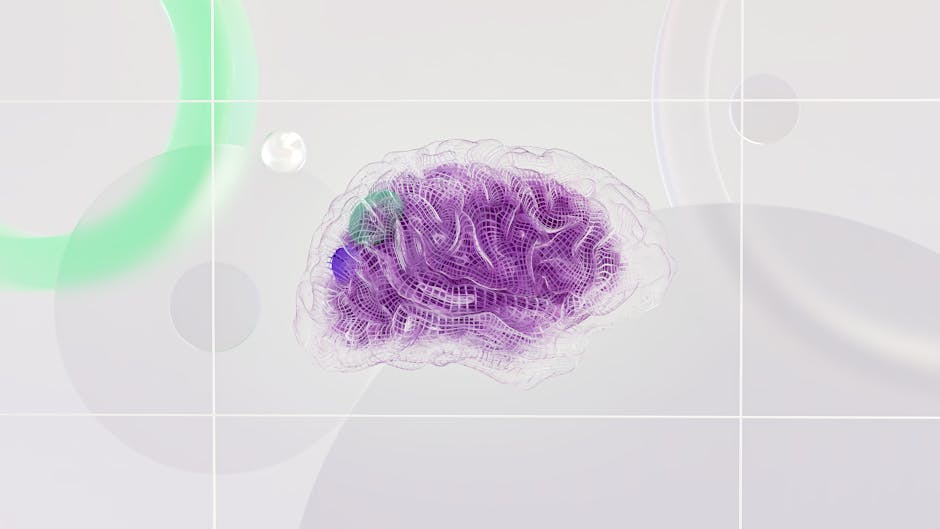AI in Software Development

Table of Content.
-
Introduction to AI in Development
-
Benefits of AI Integration
-
Common AI Tools and Technologies
-
AI in the Development Lifecycle
-
Challenges of AI Implementation
-
Future Trends in AI Development
-
Conclusion: Embracing AI
Introduction to AI in Development
Artificial intelligence, often called AI, is changing how we build software. You might wonder, what exactly is AI? Think of AI as a computer's brain that can learn and make decisions. It helps in performing tasks that usually need human intelligence, like recognizing speech or images. In software development, AI can take on repetitive tasks, making life easier for developers.
Imagine you're a software developer. You have to write hundreds of lines of code every day. AI tools can help by suggesting code snippets as you type. It's like having a smart assistant by your side, speeding up your work. AI can also test the code for errors, saving you time.
Some popular AI tools help with project management too. They analyze data to predict how long a project might take. This information is valuable because it helps teams plan better and avoid delays. AI can even track bugs and suggest fixes, improving software quality.
AI is not just for large companies. Even small teams can use AI tools to make their processes more efficient. The idea is to make development faster, more reliable, and less prone to human error. AI in software development is like adding a turbo boost to the development process. It's a growing trend that offers many advantages, making it an exciting area to explore.
Benefits of AI Integration
AI brings many advantages to software development. It speeds up tasks that were time-consuming for developers. For instance, AI can automate code testing, reducing errors and saving time. This gives developers more room to focus on creative solutions and innovation.
AI also helps in predicting software issues before they occur. By analyzing past data, AI can foresee potential bugs or system failures. This predictive ability means fewer surprises during development, leading to more stable software.
Furthermore, AI enhances decision-making by providing insights through data analysis. Developers can make informed choices based on these insights, improving the end product. AI tools can also assist in optimizing code, making it more efficient and resource-friendly.

Common AI Tools and Technologies
AI has made significant strides in software development. Some popular tools include TensorFlow, PyTorch, and Keras. These are libraries that help in building machine learning models. They're used by developers to create applications that can learn and adapt.
Natural language processing (NLP) tools are also key players. They help software understand and generate human language. Tools like NLTK and spaCy are widely used for this.
There's also an increasing use of AI in coding assistance. GitHub Copilot, for instance, suggests code snippets as you type. This speeds up the development process and reduces errors.
Image recognition is another exciting area. Tools like OpenCV and TensorFlow make it easier to build applications that can recognize and process images. These technologies are shaping the future of software by making it smarter and more efficient.
AI in the Development Lifecycle
AI is transforming how we approach the software development lifecycle. From planning to deployment, AI tools are making a mark. Let's explore how AI fits into each stage.
During the planning phase, AI can help teams understand project requirements. Tools analyze past data to predict project timelines. This makes planning more accurate.
When it comes to designing software, AI can assist in creating user interfaces. By studying user behavior, AI suggests designs that improve user experience. It helps developers focus on creativity.
In coding, AI acts like an assistant. Integrated Development Environments (IDEs) now include AI features. They suggest code snippets and detect errors. This speeds up the coding process and reduces mistakes.
Testing is crucial in development. AI automates repetitive tests, saving time. It identifies potential issues faster than manual testing. This leads to more reliable software.
Deployment is the next step. AI can monitor software performance after it's live. It alerts teams to any problems. This ensures a smooth experience for users.
Maintenance is ongoing. AI continues to be useful here. It predicts when software might need updates or fixes. This proactive approach keeps software running well.
AI's role in software development is growing. It enhances every stage of the lifecycle. Developers and businesses alike benefit from its integration. AI makes development processes more efficient and effective.
Challenges of AI Implementation
Integrating AI into software development brings its own set of hurdles. One of the first challenges is understanding how AI algorithms work. Developers often need to have a solid grasp of machine learning concepts to create effective AI solutions. This can be a steep learning curve, especially for those new to AI. Training AI models requires large amounts of data, which can be difficult to gather and manage. Without sufficient data, AI models may not perform well, leading to inaccurate results.
Another challenge is the complexity of AI models. These models can be intricate and require considerable computing power. This means developers need to have access to advanced hardware and resources, which can be costly. Additionally, testing AI systems can be tricky. Unlike traditional software, AI systems may not always behave predictably. Developers need to ensure that AI behaves as expected in different scenarios, which demands rigorous testing.
Ethical concerns also play a significant role in AI implementation. Developers must ensure that AI systems are fair and unbiased. This involves carefully selecting and processing data to avoid reinforcing existing biases. If not addressed, AI systems can inadvertently discriminate against certain groups, leading to ethical and legal issues.
Lastly, integrating AI into existing systems can be challenging. Many organizations have legacy systems that may not be compatible with AI technologies. This can require significant modifications or even complete overhauls of current systems. Developers must carefully plan how AI will fit into the bigger picture of software systems to ensure seamless integration.
These challenges illustrate why AI implementation is not straightforward. Developers need to navigate technical, ethical, and logistical hurdles to create effective AI solutions. Despite these challenges, the potential benefits of AI make it a worthwhile pursuit in software development.

Future Trends in AI Development
AI is changing how we think about software development. One trend is the rise of AI-powered tools that help developers write code more efficiently. These tools can suggest code snippets or even write entire blocks of code. This can save developers time and reduce errors in the code. For instance, many integrated development environments (IDEs) now include AI features that assist in coding tasks.
The use of AI in testing is another growing trend. AI can automatically test software and find bugs faster than a human tester. This means software can be released more quickly and with fewer issues. AI can simulate various scenarios to ensure software works in all conditions, improving its reliability.
AI is also becoming crucial in data-driven development. It can analyze large datasets to identify patterns and insights that human developers might miss. This data can inform decisions about which features to develop next or how to improve existing ones. Developers can create more user-friendly software by understanding user behavior through AI analysis.
Another exciting trend is AI in automation. Many routine development tasks that once took hours can now be automated with AI. This allows developers to focus on more complex and creative aspects of their projects. Automation can include anything from code deployment to server management.
Lastly, AI is influencing how we think about collaboration. With AI tools, developers can better coordinate across teams and time zones. AI can track project progress and suggest ways to improve it, making teams more efficient.
These trends show how AI is reshaping software development, making it faster, more accurate, and more innovative. As AI continues to evolve, its role in development will likely only grow, offering new possibilities and challenges.

Conclusion: Embracing AI
AI is becoming a big deal in how we build software. It's changing the game for developers and companies alike. You might wonder, what's the big idea behind AI in software development? Well, AI helps in making the process faster and smarter. Imagine you are a developer working on a complex project. With AI, you can automate repetitive tasks. This gives you more time to focus on creative parts of your work.
AI tools can write code and even find bugs before they become a problem. Think of it as having a super-efficient assistant. For instance, AI can suggest code snippets. This can be a lifesaver when you're stuck or unsure about the best way to write a piece of code. It's like having a colleague who knows everything and is always ready to help.
AI is not just for experts. Even beginners can use AI tools to learn faster. These tools can explain code or suggest improvements, making learning easier. Picture a student trying to understand a tough concept. With AI, they can get instant feedback and guidance. This makes learning to code less scary and more exciting.
Some might worry that AI could replace developers. But the truth is, AI works best when it teams up with humans. Developers make the final decisions. They bring creativity and problem-solving skills that AI can't match.
As AI becomes more common, we all need to be ready to work with it. Embracing AI means being open to new ways of doing things. It's about using technology to make our lives easier and our work more productive. So, let's welcome AI into our world of development. It's here to help us achieve more and push the boundaries of what's possible.
FAQ
What is the role of AI in software development?
AI is reshaping software development by automating repetitive tasks, enhancing decision-making, and improving accuracy. It allows developers to focus on more complex problems by streamlining coding, testing, and debugging processes.
How can AI improve efficiency in software development?
AI improves efficiency by speeding up coding, automating testing, and enhancing bug detection. It reduces manual labor and accelerates project timelines, allowing teams to deliver products faster and with fewer resources.
What are some common AI tools used in software development?
Popular AI tools include GitHub Copilot for code suggestion, TensorFlow for machine learning, and Jupyter Notebooks for data analysis. These tools help developers integrate AI into their workflows, enhancing productivity and innovation.
How does AI impact different stages of the software development lifecycle?
AI impacts various stages by optimizing project planning with predictive analytics, automating coding and testing, and improving maintenance with proactive issue detection. It enhances each phase's efficiency and effectiveness.
What challenges might developers face when implementing AI?
Developers may encounter challenges such as integrating AI with existing systems, managing data privacy and security, and addressing ethical concerns. Technical limitations and a lack of expertise can also hinder successful AI implementation.
What are the future trends in AI for software development?
Future trends include the rise of AI-driven low-code platforms, increased use of natural language processing, and the integration of AI in cybersecurity. These trends point towards more intuitive and secure development processes.
Why is it important to embrace AI in software development?
Embracing AI is crucial as it drives innovation, enhances competitiveness, and meets the growing demand for sophisticated software solutions. AI's potential to revolutionize development processes makes it an invaluable asset for the future.